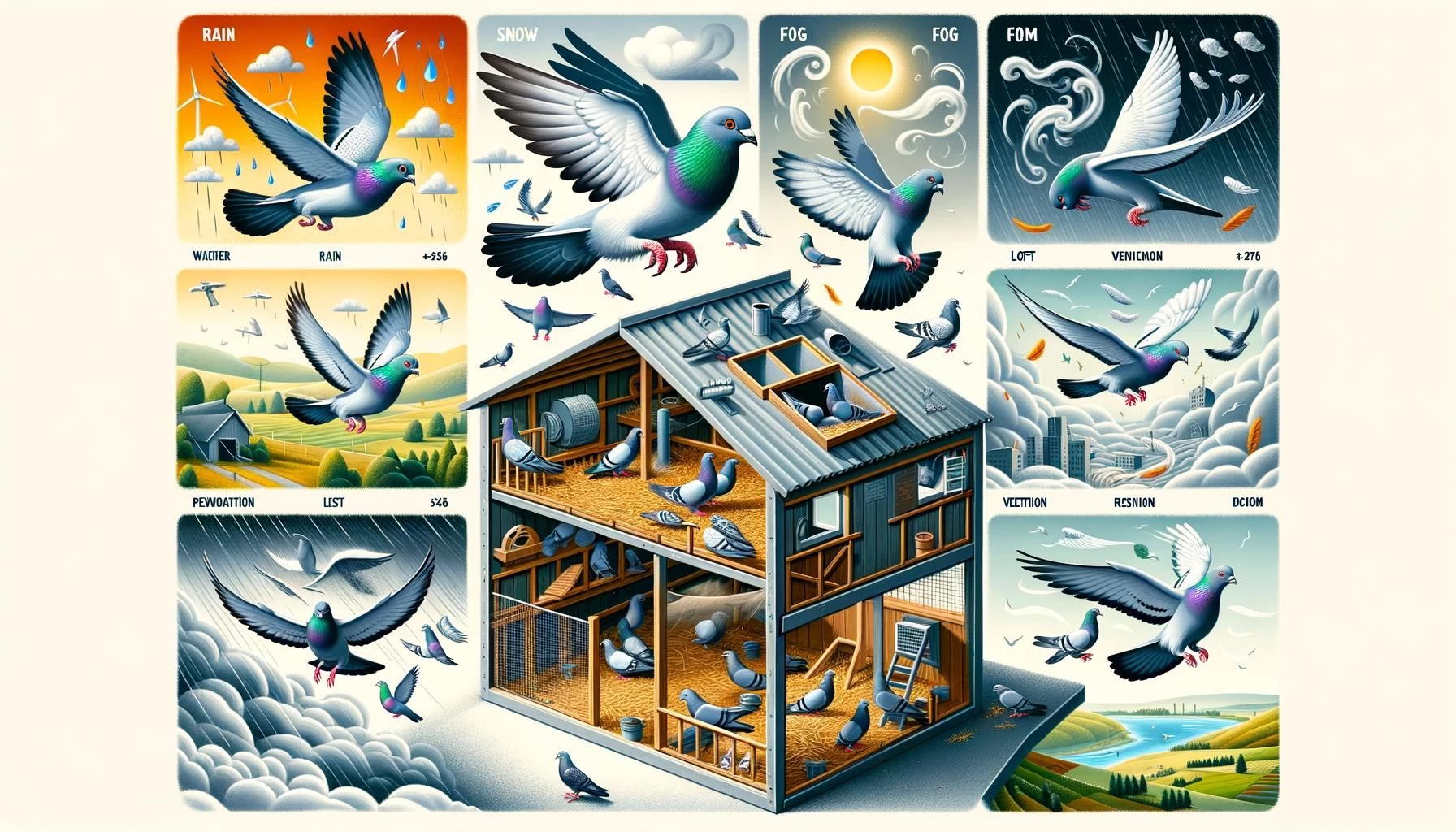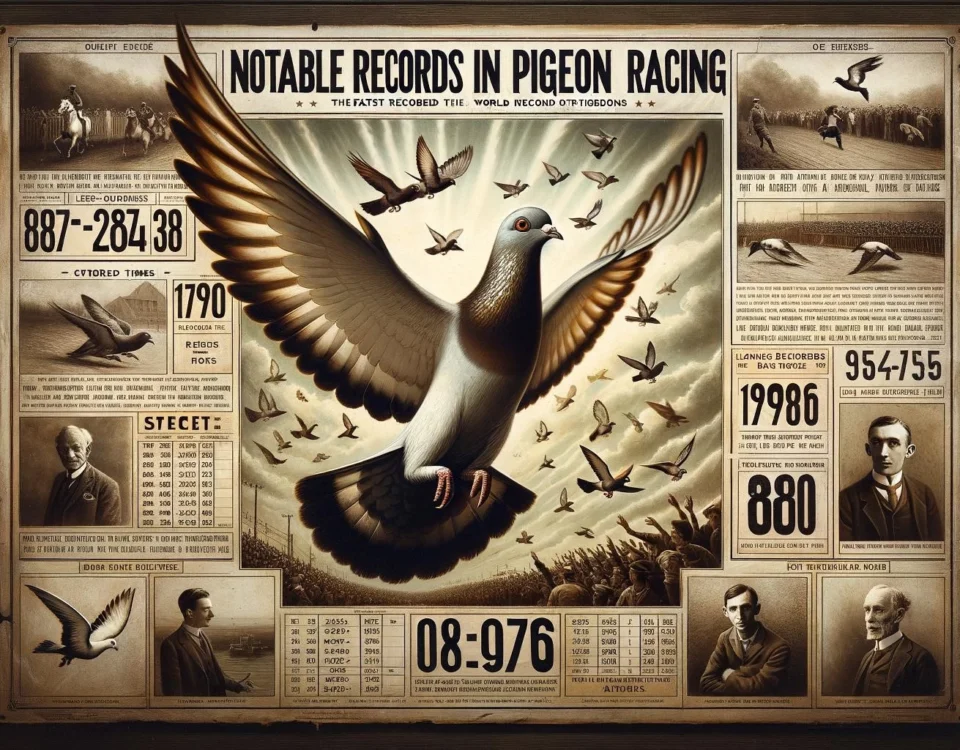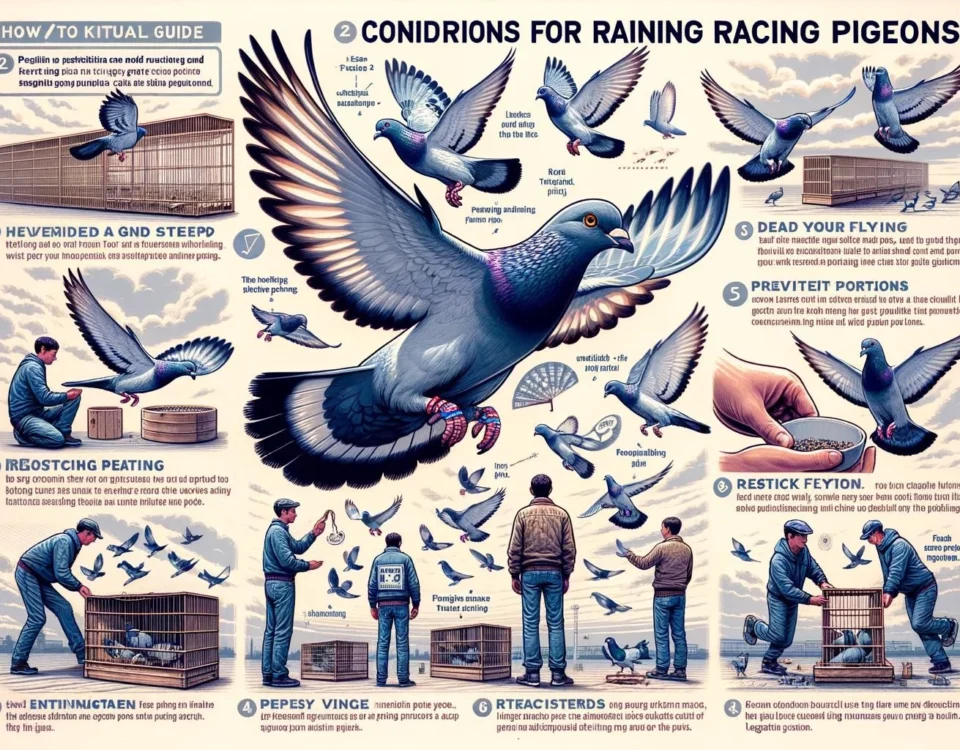Navigating the skies with remarkable homing abilities, racing pigeons are a fascinating blend of speed, endurance, and adaptability. However, their performance and well-being hinge significantly on their environment, particularly weather conditions and the loft they call home. This examination delves into the nuanced effects of weather elements such as heat, cold, and rain on these avian athletes, while shedding light on the importance of a well-maintained loft in promoting their health and social well-being. The adaptability and longevity of racing pigeons in various environments further underscore the intriguing nature of these birds.
Key Takeaways
- The environment plays a crucial role in racing pigeon performance and well-being.
- Extreme weather conditions such as heat, cold, rain, and strong winds can have adverse effects on racing pigeons.
- Monitoring weather conditions and making informed decisions based on forecasts is important in managing the health and performance of racing pigeons.
- A well-designed and maintained loft provides a comfortable and safe environment for racing pigeons to live and flourish.
- Creating a fulfilling environment for racing pigeons involves providing companionship, social interaction, and proper training.
The Impact of Weather on Racing Pigeons
Racing pigeons are known for their remarkable homing abilities and their participation in long-distance races. While various factors can influence the outcome of a race, the environment, particularly weather conditions, plays a crucial role. Extreme weather conditions such as high temperatures, cold snaps, rain, and strong winds can significantly impact the health and performance of racing pigeons.
Heat can be particularly dangerous for racing pigeons as they are not well-suited to high temperatures. Prolonged exposure to heat can lead to dehydration, heat exhaustion, and even death. Additionally, high temperatures can cause respiratory issues, making it challenging for pigeons to breathe and fly effectively.
On the other hand, cold weather can also pose risks to pigeon health. Racing pigeons, especially those from warmer climates, may struggle to adjust to cold temperatures. Cold-weather competition can lead to respiratory issues, frostbite, and hypothermia, which can adversely affect pigeon performance.
Rain can also impact racing pigeons’ health and ability to fly. Prolonged exposure to rainwater and moisture can lead to respiratory infections and other health complications. Damp feathers can make it challenging for pigeons to fly and navigate effectively.
Strong winds can pose challenges for racing pigeons as well. Birds may become disoriented, making it difficult for them to navigate successfully. Flying in windy conditions can also result in physical exhaustion and stress.
To manage the impact of weather conditions on racing pigeons, pigeon fanciers employ various strategies. They monitor local climate patterns using instruments such as radar, satellite imaging, and apps. By tracking weather forecasts, fanciers can make informed decisions about training plans, race distances, and loft modifications. This helps ensure the safety and well-being of the pigeons during competitions.
Creating the Ideal Loft Environment
A well-designed and maintained loft is essential for providing a comfortable and safe environment for racing pigeons. Proper loft design and maintenance contribute to the birds’ overall health, well-being, and performance.
Some critical aspects of creating the ideal loft environment include size, ventilation, cleanliness, and hygiene. The loft should offer enough space for pigeons to move freely, engage in necessary activities, and have separate compartments for breeding, resting, and training. Adequate ventilation helps maintain fresh air circulation, preventing the buildup of harmful gases and maintaining optimal temperature and humidity levels.
Cleanliness is essential to ensure pigeon health. Regular cleaning of the loft, removing accumulated droppings, and maintaining clean feeders and water containers helps prevent the spread of diseases and ensures a hygienic environment for the birds.
Additionally, providing companionship and social interaction for racing pigeons is crucial for their emotional well-being. Pigeons are highly social creatures that crave companionship. Allowing pigeons to bond and share experiences with their fellow birds helps create a fulfilling environment for them.
Proper training is also essential in creating the ideal loft environment. Young racing pigeons should be given opportunities to fly around the loft, familiarizing themselves with the environment. This is vital for their later, longer flights during races. Training should be tailored to the birds’ stamina and gradually increased to ensure optimal performance.
The Longevity and Adaptability of Racing Pigeons
The environment in which pigeons live can significantly impact their longevity. Urbanization, pollution, availability of food and water, and exposure to natural predators are some factors that can influence pigeon lifespan. Racing pigeons, known for their exceptional flight abilities and speed, often have longer lifespans due to their robust nature and the care they receive from pigeon fanciers.
Pigeons are highly adaptable birds that can thrive in various environments. They can be found in cities, towns, and suburbs worldwide, adjusting their behavior, nesting locations, and foraging habits accordingly.
In conclusion, the environment plays a vital role in racing pigeons’ performance, well-being, and longevity. Weather conditions, such as extreme temperatures, rain, and strong winds, can have adverse effects on racing pigeons. Monitoring weather forecasts and making informed decisions based on predictions allows fanciers to manage the health and performance of their birds effectively. Creating a well-designed loft with proper ventilation, cleanliness, and social interaction is essential in providing a fulfilling environment for racing pigeons.








